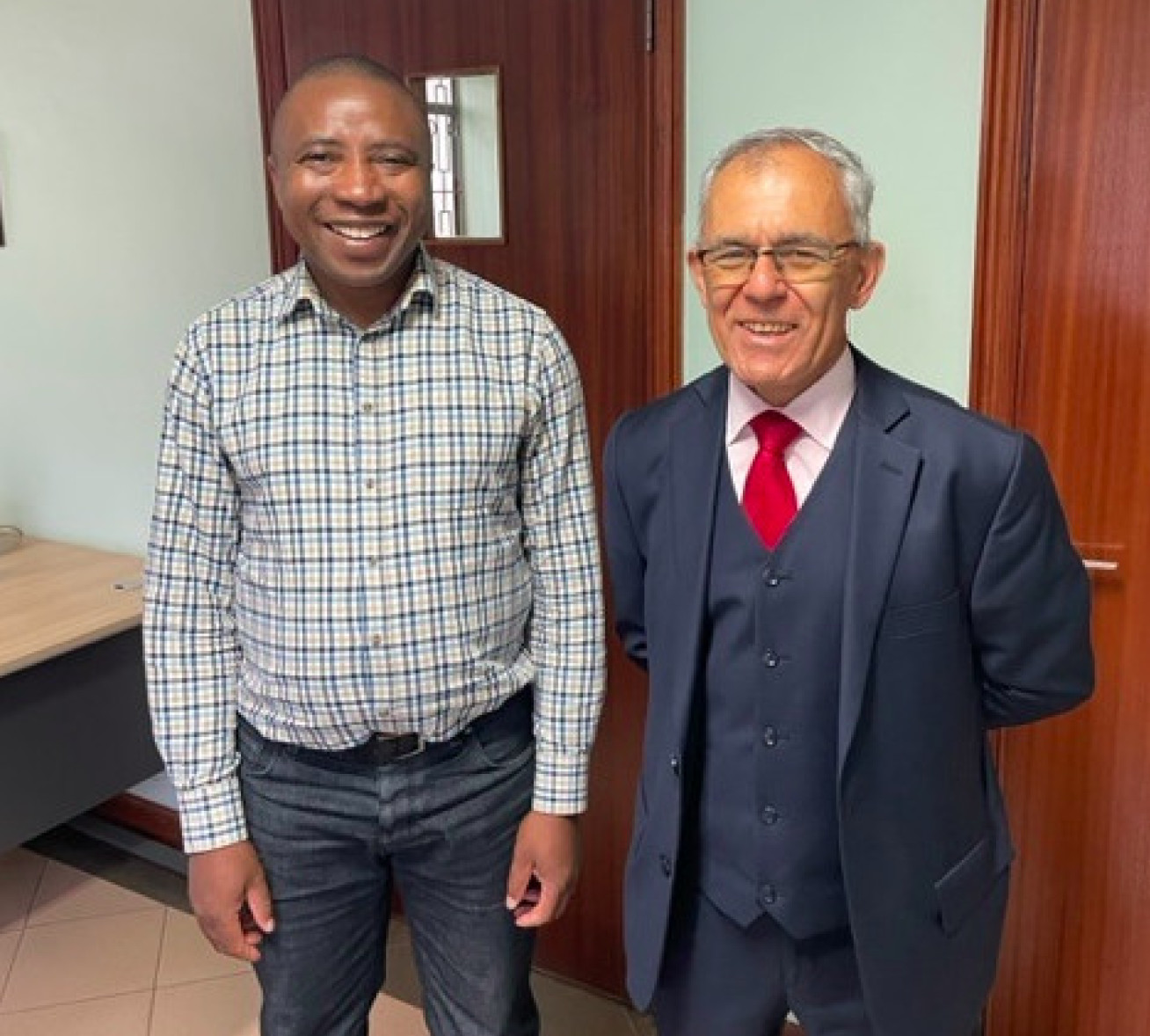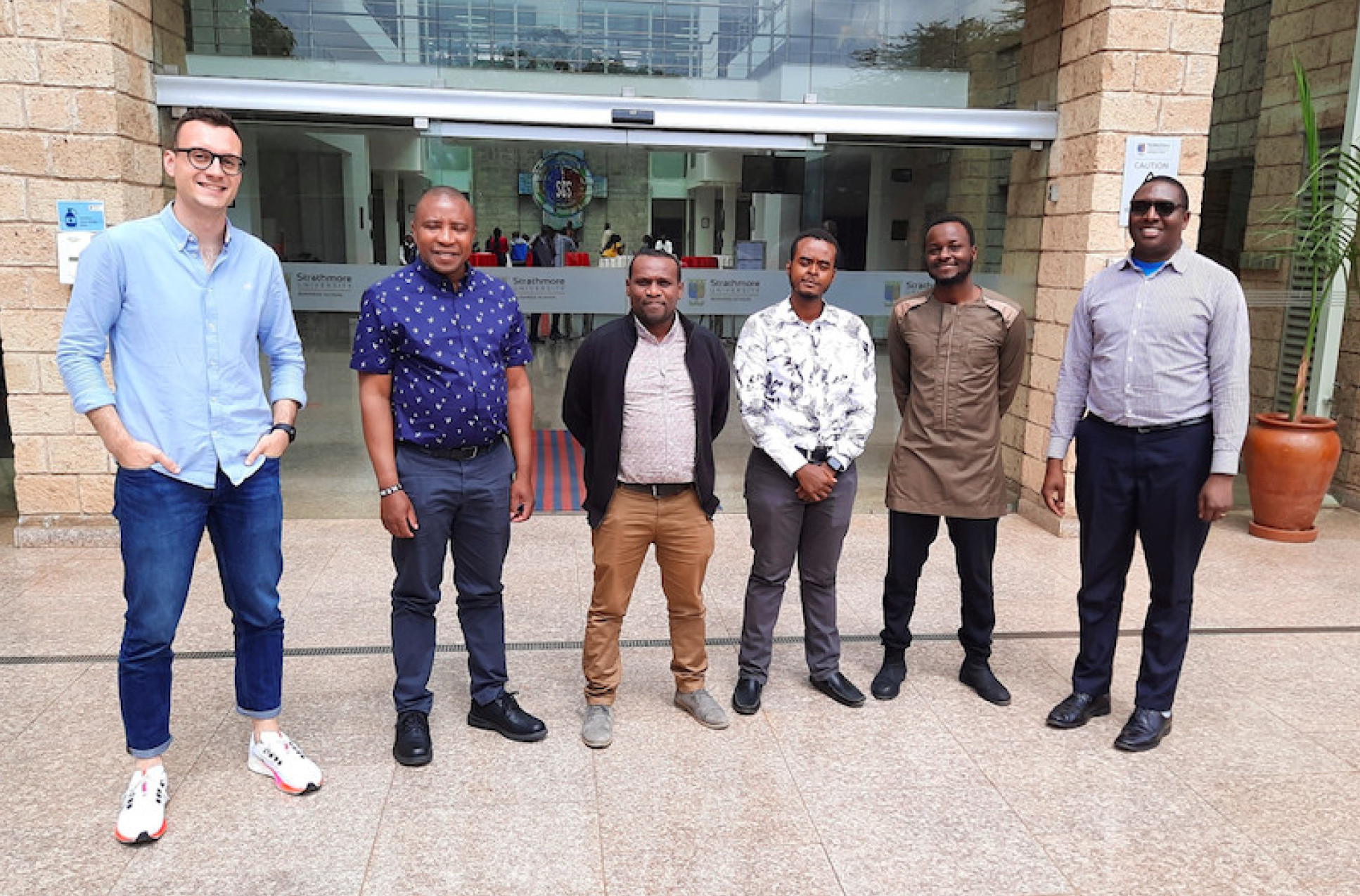Decarbonising the world isn't a one-size-fits-all
If we want to decarbonise the world, we have to work together – but don’t expect everyone to decarbonise at the same rate, says Dr Onesmus Mwabonje.
The world has industrialised with fossil fuels at different rates, with the Global North having contributed the most to carbon emissions.
Many countries in the Global South meanwhile are still going through this development, just at a time when there is a need for the world to rapidly decarbonise to halt further climate change.
Dr Onesmus Mwabonje, Research Fellow in the Centre for Environmental Policy, says decarbonising is therefore not a one-size-fits-all, and poorer countries will need to be supported to transition along a greener development path.
What do you research?
I research Life Cycle Assessment (LCA), which is a bit like accounting for the environment. It’s used to quantify (and reduce) the environmental burden of products – from acquiring materials, production, and through to the end of a product’s life. I lead the Life Cycle Network and the Energy and Climate Research Theme at the Centre for Environmental Policy (CEP).
Give us examples of your work

I’ve been working with the UK Department of Business, Energy and Industrial Strategy (BEIS) supporting five countries in the Global South to develop their own carbon calculators, which are essentially tools to help decarbonise their economies. This is part of the BEIS funded 2050 International Calculator Programme and will be presented at COP27 in Egypt.
My particular area of expertise is bioenergy and land use for food and bioenergy provision. I’m an expert in assessing feedstocks for biomass and biofuels energy installations, and have managed projects in the United States, Kenya and South America.
Why should we decarbonise?
Countries need to decarbonise deeply – the world is warming and if we don’t take drastic steps to decarbonise more climate change disasters such as floods and fires will become even more common. Climate change impact is already being felt across the globe.
How do we decarbonise in an unequal world?
Those in the Global North can’t now be the world’s prefect and tell the South not to industrialise. Dr Onesmus Mwabonje
The road to decarbonisation is not a one size fits all. The countries in the Global South aspire to industrialise, just as those that have done so in the Global North. Those in the Global North can’t now be the world’s prefect and tell the South not to industrialise.
What we need to do, is provide them with the latitude to decarbonise sensibly, in a way that does not harm the environment, and that matches their own timeline. We need to support them with access to finance, clean technology, renewables – and also help plug knowledge gaps through capacity building.
It is absolutely essential that countries come together, even though timelines are different, to make collective decisions to decarbonise the world.
What would a decarbonised world look like?
One that is completely free of fossil fuels for its energy needs, and where our buildings are energy efficient, to ensure deep decarbonisation. It would be a world where everybody, not just government and research institutions, does little things to make the world a better place.
Should we be making better use of waste to help us decarbonise?

Yes – waste is only a waste until it finds a use. Nations need to think about circularity, so that waste can generate energy and be used as an feedstock for other products. This would help ensure the world’s natural resources are used in a more sensible way, rather than just extracting, producing and then disposing of.
For example, a company in Kenya produces biogas from local crop waste from the horticultural sector (flowers and french beans). The electricity generated is fed into Kenya’s national grid, and nitrogen-rich matter as a by-product from the biogas process goes back to the soil as fertiliser.
Are there any ‘low hanging fruit’ for decarbonisation?
Yes, individually and also as states. A lot of the low hanging fruits don’t require much, other than educating people, so that choices like cycling to work, or taking public transport become second nature. These types of measures are easily accepted, while others such as carbon taxes, are not – even though they are easy wins.
Are there any technologies you would like to see governments support?
There are a number of technologies I’d like to see deployed. Carbon capture and storage is a relatively new technology which might sound futuristic, but it’s one I think governments should be thinking about if we are going to decarbonise by 2050.
What is your hope for the future?
That if we take time to educate our children, it will become part of human DNA to think about the environment in all aspects of our lives – because our lifestyles must change if the world is to survive.
Article text (excluding photos or graphics) © Imperial College London.
Photos and graphics subject to third party copyright used with permission or © Imperial College London.
Reporter
Jez Fredenburgh
The Grantham Institute for Climate Change